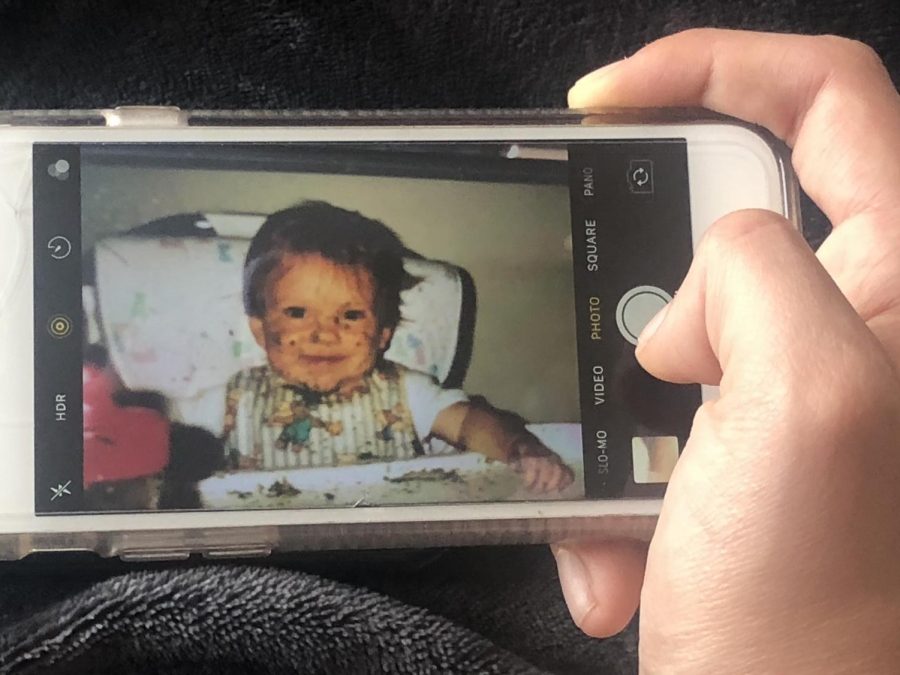‘Sharenting’: How Social Media Is Changing Our Families
April 26, 2020
Social media’s promise to connect people around the world is one not broken. Especially now, in these trying times, social media is the only way to communicate safely for many. While this has helped friends and family keep in touch, how much is too much when it comes to family sharing?
“Sharenting” is a term defined as a parent or guardian sharing their children’s lives on social media. Often this is done to keep people up to date on how kids are doing and what they are doing, but an innocent motivation such as this can have toxic and sometimes even dangerous results for children.
One example is a sort of “keeping-up-with-the-Joneses” mentality. Subtle competition among families over the accomplishments of their children can become a driving force in parents pushing their children to do better. Insecurity can spark in the parent and the child over an Instagram post of so-and-so making the football team, or getting into a certain college.
Sharenting also highlights an issue with a child’s privacy. Photos and videos that may seem fine now can become embarrassing later. The information posted creates a digital footprint that can later be used by data miners and advertisers.
Leah Plunkett, a faculty associate for the Berkman Klein Center for Internet and Society, argues in The New Yorker that through sharing a child’s life digitally, parents are accelerating their child’s entry into “digital life.”
One Santa Fe High junior, Allyson Anaya, comments on her parents’ use of social media. “Yes, they are very active,” she says, “they post about me without my permission constantly…. My dad wants to share our accomplishments and funny stuff.”
A sophomore who prefers to remain anonymous also offers input, noting that their parent’s sharenting is “not as much as it used to be,” but that they used to feel upset about photos or videos of them being posted without their permission.
As for Allyson, she says that though she is “embarrassed,” it’s not that important. “There are some photos, but I ultimately don’t care.”
“It’s very rare that parents are sharing maliciously,” says Stacey Steinberg, associate director of the Center on Children and Families, in The Atlantic. “But they haven’t considered the potential reach or longevity of what is happening with the information they’re posting.”


